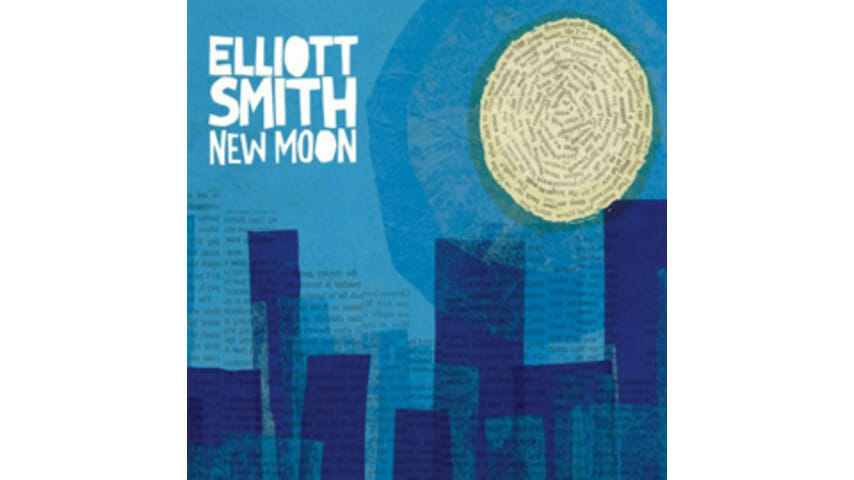Elliott Smith – New Moon

Double-disc collection documents genius and self-destruction
One day in the late 1990s, not long after his sublime performance of “Miss Misery” in between the bombast of Celine Dion and bravado of Michael Bolton at the 1998 Academy Awards ceremony, Elliott Smith ambled into MTV Networks for an appearance on one of the channel’s daily shows. I was head of music editorial at the time and went to meet the shy singer/songwriter in the green room for a chat about the kinds of questions he might be asked. He was nervous, fidgety, withdrawn, and he wore it all on his sleeve as he sat through one of the more awkward interviews I’d ever seen on celeb TV. It was also one of the more honest ones. It was clear to me that Smith would rather have been anywhere in the world that day than trapped in the tangled web of multicolored MTV sets. Like Brian Wilson a generation earlier, Elliott Smith just wasn’t made for those times.
One reason could be that Smith’s music is timeless. And the 24 demos, outtakes and radio sessions that make up New Moon prove that. Anyone looking to this collection for extra insight into the Elliott Smith psyche—or into the mysterious circumstances surrounding his stabbing death four years ago—will be disappointed. These tracks don’t shed any more light onto Smith’s psychology than do the songs from his first two albums for Kill Rock Stars, Elliott Smith and Either/Or. After all, Smith came out of the gate with lyrics that let us in on his loneliness and depression, his struggles with drugs and alcohol and his relationship problems. What these unearthed gems do shed light on is the depth of Smith’s songwriting gift during his most fertile years, 1995-1997.
-

-

-

-

-

-

-

-

-

-

-

-

-

-

-

-

-

-

-

-

-

-

-

-

-

-

-

-

-

-

-

-

-

-

-

-

-

-

-

-








































